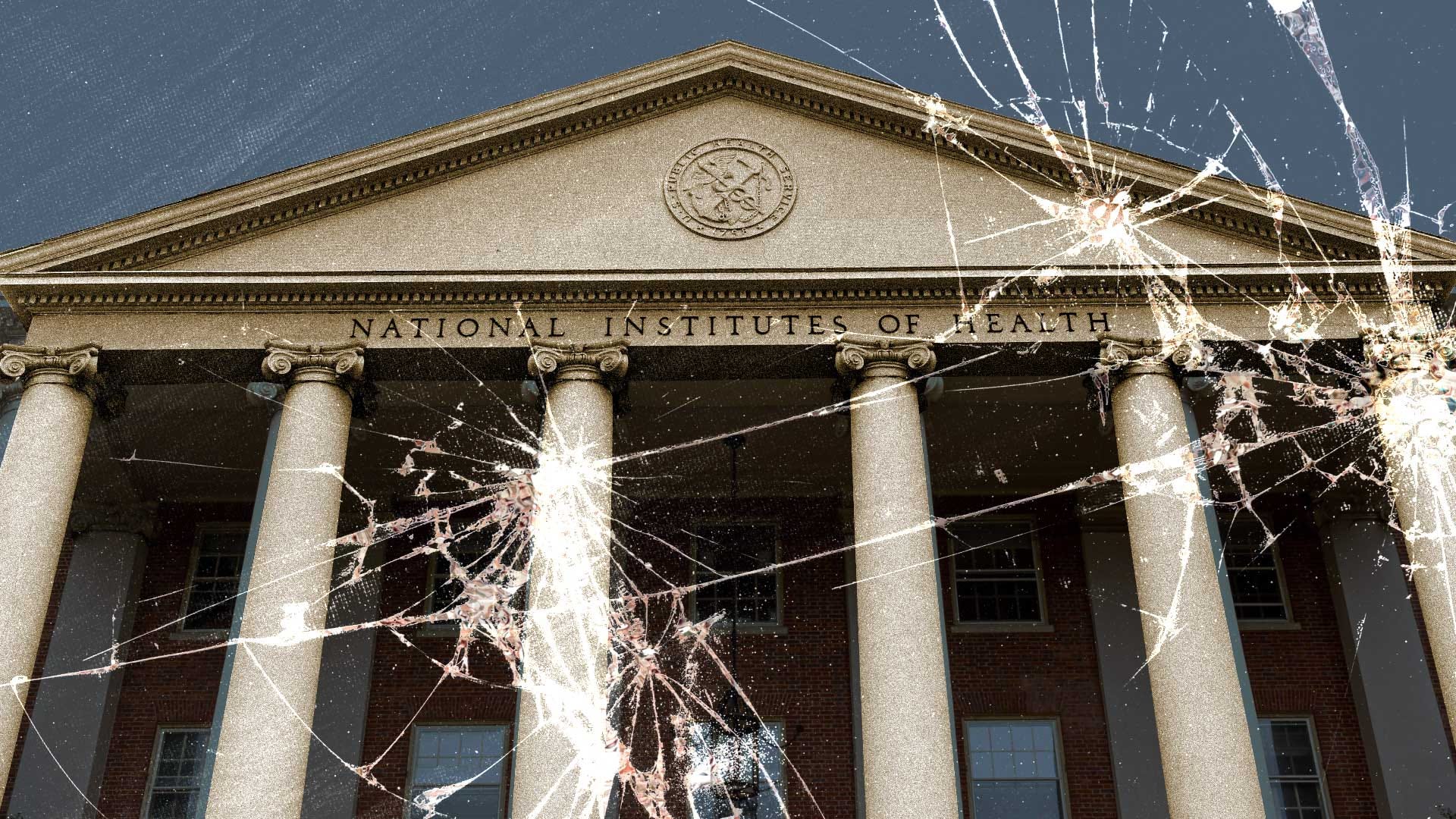Why it matters that the NIH canceled a coronavirus research grant
When 60 Minutes correspondent Scott Pelley recently sought to report on the origin of the novel coronavirus sweeping the globe, producer Ashley Velie pointed him to Dr. Peter Daszak, a disease ecologist whose work in sampling and researching coronaviruses in wildlife has helped identify potentially dangerous emerging diseases in humans. It turns out Pelley had previously reported on Daszak and was familiar with his research into how coronaviruses—such as the one causing COVID-19—move from bats to humans.
But this time, Daszak's story took an unexpected turn. Shortly after Pelley finished interviewing him last month about COVID-19's origin, the U.S. National Institutes of Health (NIH) abruptly canceled a five-year, $3.7 million grant supporting his research. Pelley and Velie had a new story to report and returned to Daszak for a second interview.
Several U.S. officials, including Florida Republican Rep. Matt Gaetz, had raised suspicions about the Wuhan Institute of Virology, one of Daszak's key collaborators in China. When a reporter mischaracterized key details of the NIH grant during a White House press conference last month, President Trump said he would check if any U.S. funds had been granted to the Wuhan Institute, and if so, he said, they would immediately be terminated.
But the $3.7 million grant was not given to the Wuhan Institute. It had been awarded to Daszak's New York-based organization, EcoHealth Alliance. A week after President Trump said the funds would be terminated in China, the NIH took action against EcoHealth Alliance, giving the organization no reason for the grant's termination. Ending an NIH grant usually requires a full investigation and proof of an egregious action like scientific or financial fraud—neither of which applied to EcoHealth Alliance.
Fellow scientists have spoken out about the unsettling precedent the NIH set. "This is cutting off your face to spite your nose," Gerald Keusch, a former director of NIH's Fogarty International Center, told Science. "This is the worst kind of thing that political interference can cause in a democracy."
Recognizing the ramifications of NIH's decision involves understanding of the scope of Daszak's work—and its impact on future coronavirus pandemics.
Pelley and 60 Minutes first met Daszak for a 2004 report. At the time, scientists were still trying to determine the origin of the coronavirus that had caused a global outbreak of SARS, and ecologists like Daszak were among the virus hunters on the case.
For this earlier report, Pelley traveled to Malaysia, where Daszak and a colleague were trying to find the source of another deadly virus, Nipah, which had killed 40 percent of the people it infected. The ecologists eventually traced the virus to bats, which ate the fruit from trees farmers had planted over their pigsties for shade. Pigs then ate bits of tainted fruit the bats had dropped near them.
But even as he was trying to figure out how Malaysian pig farmers had contracted Nipah, Daszak had his eye on future outbreaks.
"What worries me the most is that we are going to miss the next emerging disease," Daszak told Pelley at the time, "that we're suddenly going to find a SARS virus that moves from one part of the planet to another, wiping out people as it moves along."
As part of his efforts to predict and prevent future pandemics, Daszak subsequently became president of EcoHealth Alliance, which researches where pandemics come from and how to stop them. Much of his work involves bats, which have become breeding grounds for deadly viruses.
As Daszak explained to 60 Minutes, no one knows for sure why bats are such adept hosts for disease, but one theory is that bats are the only mammal naturally capable of sustained flight. Flying, Daszak explains, burns a lot of oxygen and puts a lot of stress on bats' cells. As a result, their immune system kicks in.
"Bats can't live with that sort of immune response all the time, so they dampen down their immune response. That's been shown," Daszak said. "And in dampening down their own immunity, they allow viruses to proliferate. So bats carry a higher amount of virus and a higher diversity of viruses than other mammals."
Bats, Daszak and a team of international scientists discovered, were the origin of the 2003 SARS outbreak. While scientists do not yet know the origin species of COVID-19, the closest match has been found in a bat coronavirus in China's Yunnan province that shared 96 percent of its genetic material with the virus that's known to cause COVID-19.
As hunting for virus origins shows, partnerships with scientists around the world are key. Daszak's EcoHealth Alliance has worked for years with the Wuhan Institute, and together they've catalogued hundreds of bat viruses, including dozens of previously unknown coronaviruses. The antiviral medication Remdesivir, the only drug so far proven to help patients with COVID-19, was initially tested against the viruses Daszak and his team had discovered under previous funding from the NIH.
Daszak said EcoHealth Alliance had been spending about $100,000 a year collaborating with the Wuhan Institute.
"I can't just show up in China and say, 'Hi, I want to work on your viruses,'" he said. "I have to do this through the correct channels. So, what we do is we talk to NIH, and they approve the people we can work with in China. And that happened. And our collaboration with Wuhan was preapproved by NIH."
Last year, the NIH reauthorized EcoHealth's five-year grant after independent scientists reviewed the application. According to Daszak, EcoHealth's grant received a high-priority score and was in the top three percent of grants the NIH reviewed last year.
The NIH would not tell 60 Minutes why EcoHealth Alliance's grant was canceled or whether anything like it had happened before.
Daszak says the consequence of NIH pulling the $3.7 million grant will be felt for years to come.
"It matters because number one, our work is used in developing vaccines and drugs to save American lives and the lives of people around the world. So that matters a lot," Daszak said. "Number two, if we really want to know where viruses are going to emerge and cause the next pandemic, we need to have scientific collaborations like this. They're our only eyes and ears on the ground in countries that are very difficult, for political reasons, to work in."
"We are the frontline of preventing the next pandemic," he said. "And we need to get on with our job."
The video above was produced by Will Croxton and Brit McCandless Farmer. It was edited by Will Croxton.



